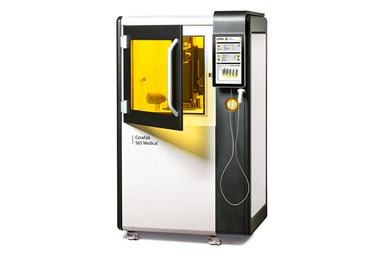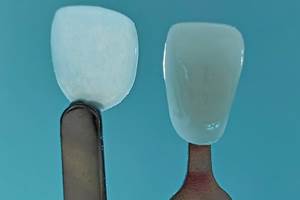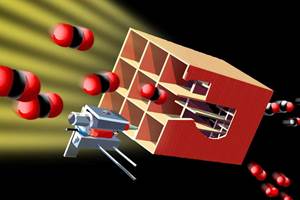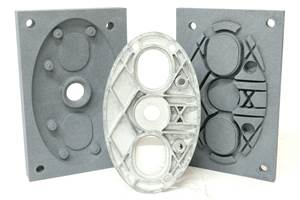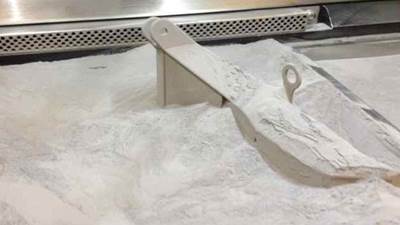Lithoz Partners With SiNAPTIC for Ceramic Additive Manufacturing
The deal includes joint sales and marketing activities, as well as the purchase of seven Lithoz CeraFab S65 Medical printers for SiNAPTIC’s new research center in Lafayette, Colorado.
Lithoz, global provider for ceramic 3D printing, and SiNAPTIC, a Colorado-based additive manufacturing (AM) and medical device startup focused on 3D printed solutions made with technical ceramics, have signed a strategic partnership agreement that includes joint sales and marketing activities. The deal also includes the purchase of seven Lithoz CeraFab S65 medical printers for SiNAPTIC’s new research center in Lafayette, Colorado.
Lithoz says this formalized agreement is another example of how it supports its partners by building proactive partnerships and efficiently leveraging its key technology. These partnerships include designing and developing first prototypes all the way to successful establishment as industrial scale contract manufacturers.
In addition to the development of its medical device products and R&D activities, SiNAPTIC will offer its expertise for OEM contract manufacturing on the accelerating North American market, responding to the numerous inquiries of OEMs from various industries. It will also distribute Lithoz printers, materials and software across North America. A new “SiNAPTIC powered by Lithoz” ingredient branding will be prominently placed by SiNAPTIC on their products.
The agreement between Lithoz and SiNAPTIC is designed to ultimately bring new AM solutions to a wider audience in the U.S., Canada and Mexico. With many more businesses now being able to take advantage of the groundbreaking capabilities offered by technical ceramics, it will give innovators and businesses a completely new way to bring many types of new products to market faster and with significantly less risk, according to Lithoz.
SiNAPTIC comprises two business divisions — SiNAPTIC Technologies and SiNAPTIC Surgical — each with a different focus. SiNAPTIC Technologies provides R&D and prototyping all the way to scaled OEM manufacturing, whereas SiNAPTIC Surgical is currently undergoing FDA approval to become a fully integrated original medical device producer.
SiNAPTIC’s CEO Bryan Scheer, MD, underlines the great mutual benefit of this strategic partnership. “By partnering with Lithoz, the experienced global leader in ceramic 3D printing, SiNAPTIC will gain access to a comprehensive range of technical ceramics, technologies, and unparalleled expertise,” Scheer says. “This partnership will allow SiNAPTIC to focus on optimizing efficiency in manufacturing and scaling production for our customers.”
For Lithoz, this deal will have a fruitful stimulus for both companies’ growth plans. “With SiNAPTIC we have found the right partner for the rapidly growing volume of inquiries on the North American market at exactly the right time!” says Dr. Johannes Homa, Lithoz CEO. “With the strong passion and huge momentum they bring on their mission to disrupt the medical device market with unique 3D-printed technical ceramics, we quickly came to the conclusion that they are also the right company to be a leading contract manufacturer for the many different inquiries, from prototyping to serial production, we have received from OEMs of various verticals during the last months.”
- Read how Lithoz is supporting Zenit Smart Polycrystals’ materials for solid-state lasers.
- Learn about the Lithoz ceramic material for 3D printed bone replacements, which are 3D printed, patient-specific parts made of hydroxyapatite that are well suited for bone replacements in the medical and dental field.
- Check out this article on Lithoz’s acqusition of CerAMing and its LSD printing technology, which Lithoz says enables it to now fully cover all strategically relevant market potentials in ceramic 3D printing.
Related Content
MoldJet Technology Enables High-Throughput Metal, Ceramic Additive Manufacturing
Formnext 2023: Tritone Technologies’ additive manufacturing solutions enable industrial throughput of accurate parts with a range of metal and ceramic materials.
Read MoreBMF Receives FDA Clearance for UltraThineer Dental Veneer Material
The zirconia materials are now qualified for use in the production of the world’s thinnest cosmetic veneers, which require significantly less tooth preparation or grinding, thereby preserving more of the patient’s natural enamel.
Read More3D Printed Reactor Core Makes Solar Fuel Production More Efficient
The solar reactor uses water and CO2 from the air and sunlight as the energy source to produce carbon-neutral liquid fuels, for example, solar kerosene for aviation.
Read MoreFoundry Lab: How Casting in a Day Will Improve the Design of Metal Parts (Includes Video)
The company’s digital casting process uses 3D printing, but the result is a cast part. By providing a casting faster than a foundry, the company says effective prototyping is now possible for cast parts, as well as bridge production.
Read MoreRead Next
Crushable Lattices: The Lightweight Structures That Will Protect an Interplanetary Payload
NASA uses laser powder bed fusion plus chemical etching to create the lattice forms engineered to keep Mars rocks safe during a crash landing on Earth.
Read MoreProfilometry-Based Indentation Plastometry (PIP) as an Alternative to Standard Tensile Testing
UK-based Plastometrex offers a benchtop testing device utilizing PIP to quickly and easily analyze the yield strength, tensile strength and uniform elongation of samples and even printed parts. The solution is particularly useful for additive manufacturing.
Read MorePostprocessing Steps and Costs for Metal 3D Printing
When your metal part is done 3D printing, you just pull it out of the machine and start using it, right? Not exactly.
Read More




